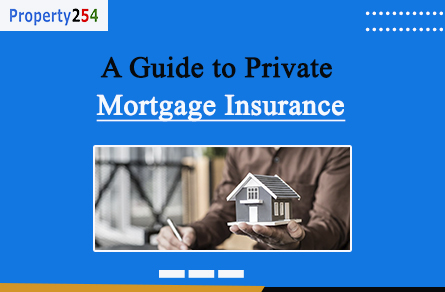Private mortgage insurance, or PMI, is a type of insurance that protects lenders from losing money if you default on your home loan. PMI is required if you have a conventional loan and make a down payment of less than 20 percent. You can pay a PMI either monthly or in a lump sum.
If you default on your home loan, the lender will look to your private mortgage insurance policy to cover the loss. The lender will look to you for the balance if the policy pays out. Private mortgage insurance is a way to protect lenders, but it does not protect the homebuyer.
This post explains all you should know about PMI. Keep reading to learn if you should or should not sign up for a PMI.
How Does Private Mortgage Insurance Work?
You may be able to cancel private mortgage insurance if you have paid down your loan to a certain point or if your home’s value has increased.
You can pay PMI in several ways, including as part of the monthly mortgage payment or lump sum at closing. Mortgage insurance typically costs 0.5-1% of the loan amount annually.
You can pay PMI monthly or in a lump sum. If you choose to pay it in a lump sum, you usually do so at the time of closing. If you pay monthly, the insurance is added to your mortgage payment.
The size of your down payment, credit score, and loan type all play a role in how much PMI you pay. A conventional loan with a low down payment may require PMI, while a government-backed loan with a higher down payment may not.
When you have PMI, it protects your lender if you default on your loan. The insurer will then step in and pay off the remaining balance of your loan. This protects the lender but does not relieve you of your obligation to repay the loan.
Once you have built up enough equity in your home, you can cancel PMI. This typically occurs when you have reached 80 percent or less loan-to-value ratio.
Types of Private Mortgage Insurance
There are two types of PMI:
Borrower-paid
With borrower-paid PMI, you pay a monthly premium (usually along with your mortgage payment). The premium is typically 0.5% to 1% of the loan amount. So, on a Ksh.2000,000 loan, you’d pay Ksh.10,000 to Ksh.20,000 a year in premiums.
Lender-paid
With lender-paid PMI, the lender covers the premium but charges you a higher interest rate. The premium is built into your interest rate, so you don’t have a separate monthly bill.
Both types of PMI stop covering the lender when your loan reaches 78% of the home’s value or the date you get 22% equity, whichever comes first. At that point, you can ask the lender to cancel PMI.
How Can I Get Rid of PMI?
Most people with private mortgage insurance do eventually cancel it. But there are a few things you need to know about the process.
If you have a conventional loan, you can request that the lender cancel PMI once you have reached 20% equity in your home. You can also refinance your home to get rid of PMI.
If you are struggling to make your mortgage payments and are at risk of defaulting on your loan, you can negotiate with your lender to have them cancel PMI. This is typically only an option if you are currently on your loan payments but face financial hardship.
You can also choose to pay off your mortgage early, which will automatically cancel PMI. However, this may not be the best option if you struggle to make your mortgage payments.
How PMI Protects the Lender
PMI protects the lender by reimbursing them if you default on your loan. This means that if you stop making payments on your mortgage, the lender will still get paid. This protects them from losses they would otherwise incur if a borrower defaults on the mortgage loan.
PMI also allows borrowers to get a mortgage with a smaller down payment. This is because the lender knows they will be protected if the borrower defaults. This can be a great option for borrowers who may not have the ability to make a large down payment.
The Cost of Private Mortgage Insurance
When you take out a mortgage, you may be required to purchase private mortgage insurance (PMI). This insurance protects the lender if you default on your loan. The cost of PMI varies but is typically a few hundred dollars per year.
The Bottom Line
Overall, PMI is a way to protect lenders from losses that they may incur if a borrower defaults on their loan. It also allows borrowers to get a mortgage with a smaller down payment.
Whether you have a 15-year or a 30-year mortgage, private mortgage insurance is good to help you protect your credit score.
Frequently Asked Questions
Who is protected by Private mortgage insurance?
The lender is the one who is protected by a PMI when the borrower doesn’t pay their loan. In this case, the lender does not repossess the borrower’s house.
Is PMI paid monthly?
You can pay in lump sum or pay your PMI on monthly premiums. However, paying monthly premiums is simpler if you are already struggling financially.
Is PMI refundable?
If you cancel the PMI, the lender has up to 45 days to refund your money. However, when you sell the house, you don’t get your PMI back.

Leave a Reply